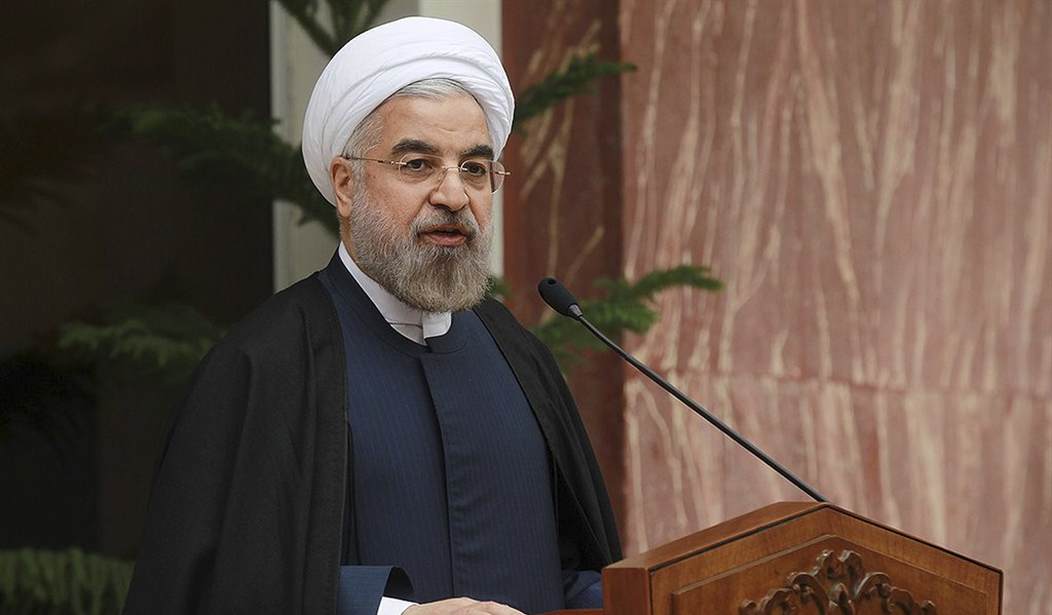British Prime Minister Neville Chamberlain, on his return to England after signing the ill-fated Munich Agreement on September 30, 1938, declared triumphantly but tragically that “peace with honour” was at hand and the deal he inked with Adolf Hitler would usher in “peace for our time.” History has not been kind to the naiveté of Chamberlain – a character flaw that convinced an emboldened Hitler that Britain was a patsy at the negotiating table. Less than one year later, when Germany invaded Poland on September 1, 1939, formally launching World War II, the true extent of the Prime Minister’s blunder became evident.
In a scenario that may turn out to be remarkably, if not eerily similar to Chamberlain’s faux pas, U.S. Secretary of State John Kerry earlier this week signed a deal with Iran that assuredly will lead that country’s radical governing regime to conclude definitively that the Administration of President Barack Obama is a fundamentally weak negotiator. In fact, by entering this latest round of negotiations in Geneva all but publicly portraying that a “deal” – any deal – was Washington’s goal, Kerry invited Iran to so conclude.
It has not always been thus.
The hallmark of the Administration of Ronald Reagan – the President who stared down the Soviet Union and brought down the Berlin Wall less than a year after concluding his eight years in office – was “Peace Through Strength” and its corollary, “Trust But Verify.” Reagan, often portrayed by his detractors as a weak negotiator, in fact understood as have few modern world leaders, the art of negotiating with one’s adversaries in the world arena. He knew instinctively not to reveal your trump cards at the start of a match; and never to concede your bottom line.
Reagan also knew the difference between substance and appearance; recognizing that the latter sometimes was useful as an intermediary step, but never as a substitute for the former. And, as he did at Reykjavik in 1986, Reagan knew when to call the other side’s bluff and walk away from the table – earning the enmity of naysayers, but knowing also that such a move likely would improve the chances for eventual victory (which in that instance, it did).
Recommended
Lessons such as those obvious from a review of the manner in which President Reagan dealt with the Soviet Union – sometimes cajoling but frequently bluntly and brutally honest – are lost totally on the Obama Administration.
The current Administration entered the just-concluded round of negotiations from a position of strength – the economic sanctions against Iran were actually working. However, this tactical advantage was frittered away from the start when Kerry allowed himself to be pushed by our European allies into making it obvious to everyone – including Iran – that in the end a “deal,” even if only in appearance, was our side’s most important take-away. Teheran was more than happy to oblige.
Once again, the United States has been bested at the negotiating table by an adversarial regime in a part of the world that remains – as Winston Churchill once described the Soviet regime – “a riddle wrapped in a mystery inside an enigma.” Yet we persist in the folly of convincing ourselves that such regimes will honor and abide by the words on a piece of paper, even if those words are, as in the accord with Iran, vague and ambiguous to begin with. That Teheran has no intent to abide by this latest agreement as the price it promised to pay in return for the billions of dollars in unfrozen assets it already has secured from the West, was apparent in the very words President Rouhani used in describing the agreement. The Iranian President immediately declared his country’s “right” to continue to enrich uranium was recognized in the accord and would in fact continue.
Sadly, even if the Geneva agreement clearly and unequivocally prohibited Iran from continuing its uranium enrichment program, the manner in which the very same accord weakened the West’s ability to monitor and verify Iran’s actions would render such provisions meaningless. This is a “deal” that is ill-conceived, ill-timed, and unnecessary; and one that ultimately will prove to be ill-fated and reckless.

























Join the conversation as a VIP Member